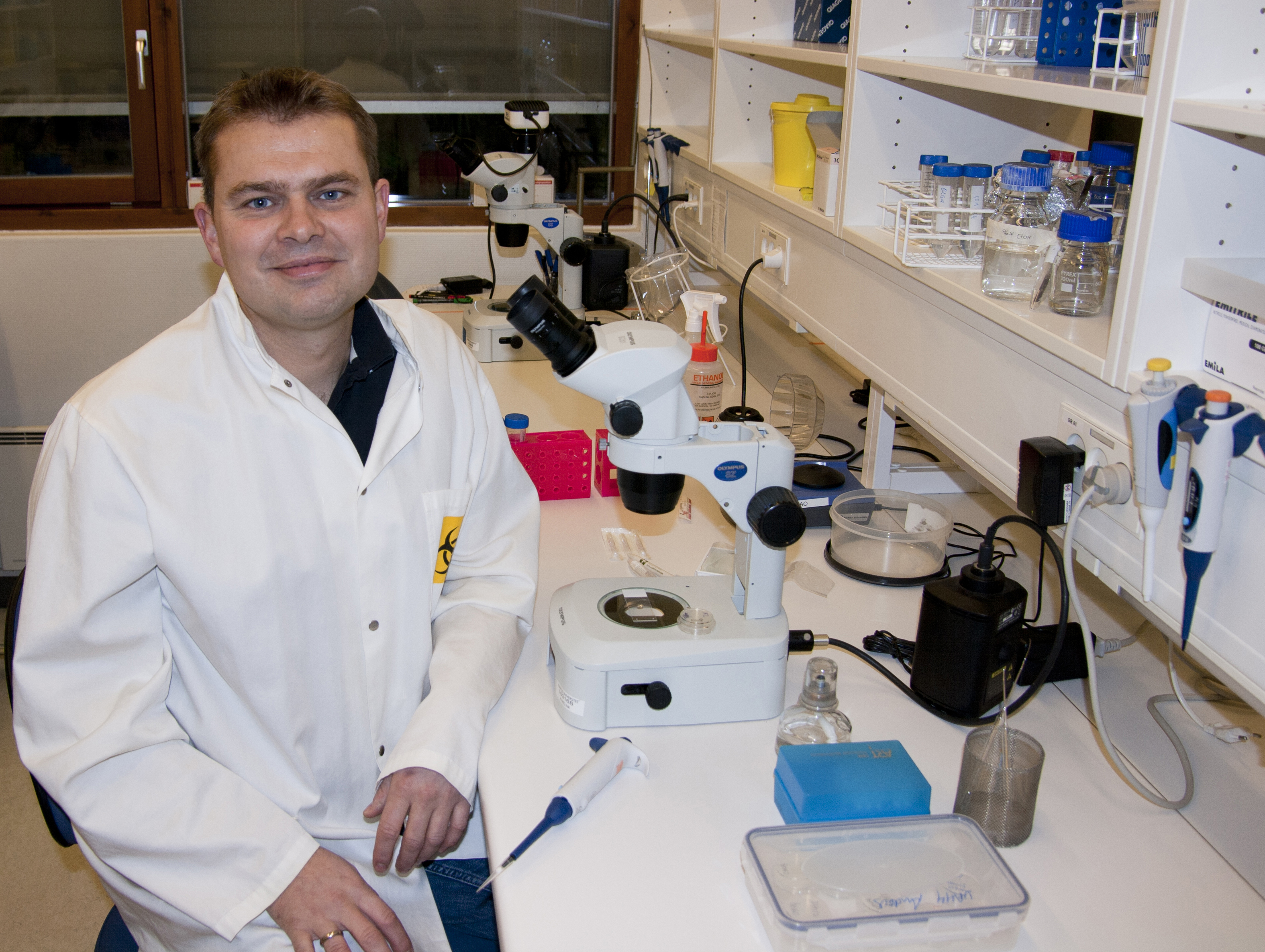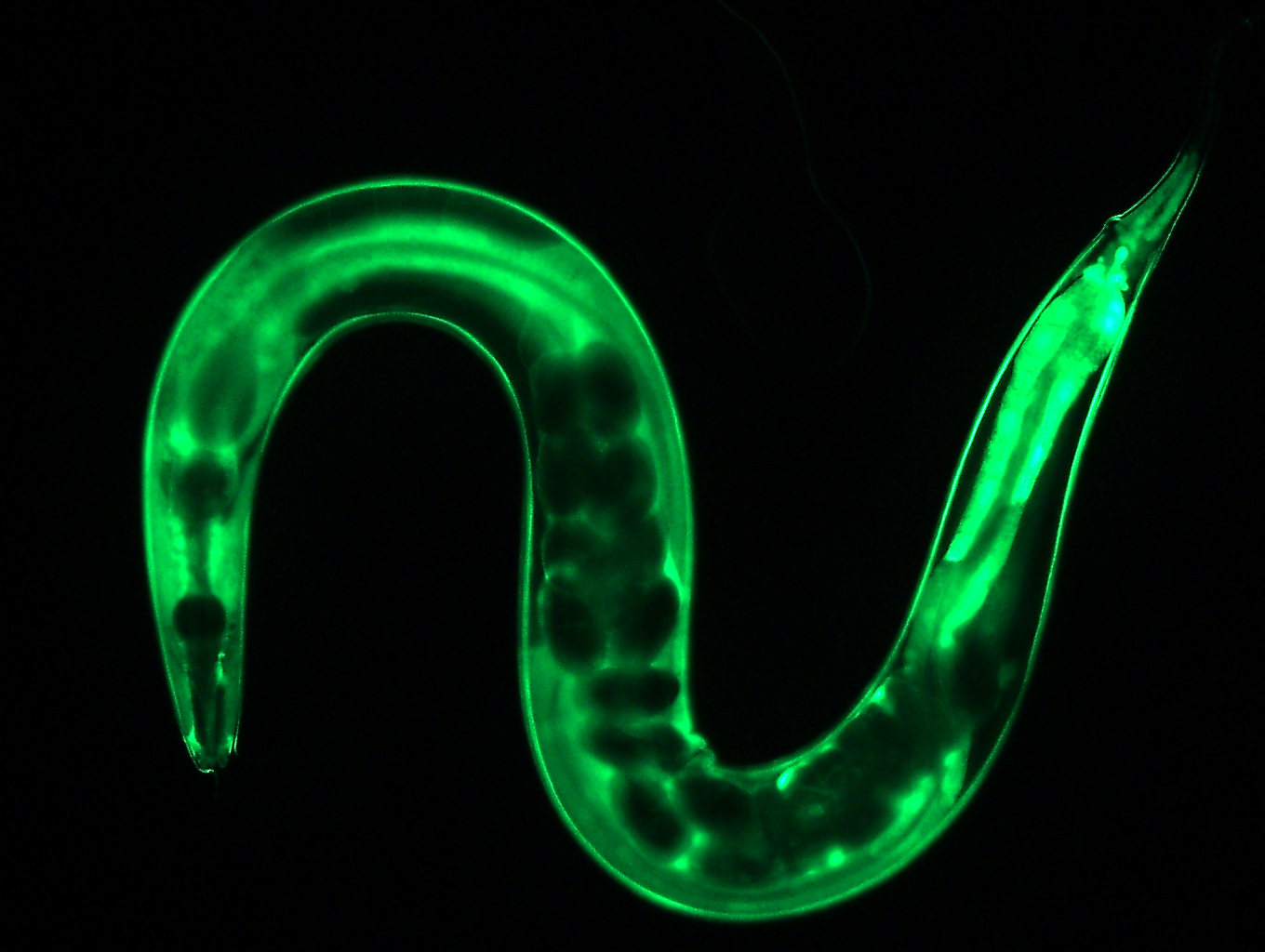Worms and health-promoting bacteria
A research collaboration between Aarhus University, SSI (State Serum Institute) and DuPont will find out why some bacteria are healthy and some harmful. A worm measuring 1.2 mm that feeds on bacteria will help provide the answers. The Innovation Fund Denmark has invested in the project by awarding a grant of DKK 10 million to Anders Olsen.


Our intestinal flora consists of many different bacteria, some of which are beneficial while others are toxic. Bacteria that have a beneficial effect on their host are called probiotic bacteria. A number of studies have shown that probiotic bacteria can prevent and treat a range of conditions including intestinal diseases, obesity, metabolic disorders and different infections.
Using probiotic bacteria as ingredients in health-promoting foods and for treating disease is an area of rapid growth. Unfortunately, our knowledge about the way these probiotic bacteria exert their beneficial effect at the molecular level is still quite limited. This is a problem because the lack of knowledge restricts the use of probiotic bacteria in connection with both preventing and treating diseases. Probiotic bacteria are not only beneficial for people, but can also to a large extent benefit domestic animals and livestock. There is a need for alternatives to traditional antibiotics, particularly in food production.
In collaboration with his partners, Anders Olsen from the Section for Molecular Intervention, Department of Molecular Biology and Genetics, Aarhus University, has designed a number of experiments to not only identify new probiotic bacteria, but to also clarify how these beneficial effects are mediated at the molecular level. For this purpose, the researchers are using a unique combination of molecular biology and genetic techniques, simple and complex model organisms, and NMR spectroscopy.
Their screening strategy is based on the simple and popular nematode (roundworm) C. elegans. Because it is so small (1.2 mm) and has a short generation time (3 days), it is extremely well suited to this type of study. C. elegans feeds naturally on bacteria and benefits from eating probiotic bacteria, just as humans do. The strong genetic tools available in C. elegans also make it well suited to genetically dissecting the underlying molecular mechanisms that will subsequently be tested in more complex models.
The project is an interdisciplinary collaboration between the Department of Molecular Biology and Genetics and iNANO (Interdisciplinary Nanoscience Center), Aarhus University, SSI and DuPont Nutrition Biosciences ApS.
Budget: DKK 14.3 million
The Innovation Fund Denmark's contribution: DKK 10 million.
Duration: 4 years
Contact information
Associate Professor Anders Olsen
Department of Molecular Biology and Genetics, Aarhus University, Denmark
e-mail: ano@mbg.au.dk, mobile: +45 3069 8155
